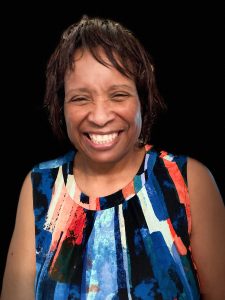By Bobby Hundley, UNC Health Foundation
Jenni Shafer, PhD, has dedicated her career to helping others.
In addition to academic accomplishments that include earning her PhD from the UNC School of Medicine’s Division of Speech and Hearing Sciences and a master’s degree from UNC’s Clinical Rehabilitation and Mental Health Counseling program, Shafer also has extensive volunteer experience. She spent years working with people with intellectual and developmental disabilities at the North Carolina Therapeutic Riding Center, and it was there where her connection to the world of aphasia and apraxia of speech – disorders that affect speech, language and communication – became even more personal.
In 2013, Shafer suffered a traumatic brain injury after being kicked by an agitated horse, an accident that required an emergency craniotomy. She woke up in the ICU at UNC Hospitals and dealt with both aphasia and apraxia of speech in the aftermath of her injury. It also led her to discover the relative lack of therapeutic resources for adults living with these conditions.
It was that realization that motivated her to create change for these vulnerable patients, and to begin tearing down the barriers for students interested this vital medicine.
Creating A Connection
Professionals in the field of speech and hearing sciences tend to be mostly white and female, demographics that do not typically match those of the patients Shafer sees in research trials. And while her history as a patient herself made connecting with research participants much easier, Shafer saw an opportunity for growth and change.
“I was able to relate to a lot of the people I worked with due to my own experience,” Shafer said. “I could sit down and say, ‘I know you’re what going through, I know what it’s like to have a communication impairment and not be able to express yourself.’”
“That got me a lot of buy-in and rapport with my research participants and I was really grateful for that. But I couldn’t help but think how awesome it would be if someone could relate to our participants on another level. I wanted to take action.”
For Shafer, that meant finding a way to recruit underrepresented students – especially students of color – to UNC’s Speech and Hearing Sciences program.
“There are certain people you meet who stick with you…”

Carol Best struggles with her speech, but she rarely struggles with communication. A stroke survivor living in Durham, Best has been an active research participant at UNC. Best and Shafer hit it off right away and have formed a special bond through years of studies and a mutual love of horror movies.
“She was someone who, from the first time I met her, really touched me with her motivation and her personality,” Shafer said. “She made it very clear how she was feeling, what she wanted to do and what worked for her and what didn’t. I just never forgot about her. There are certain people you meet who stick with you, and she stuck with me.”
When Shafer began working to establish a fund to support Black students interested in speech therapy, the name of the fund was obvious. With an initial gift of $25,000, Shafer launched the Carol M. Best Diversity Fund in Speech and Hearing Sciences.
Best says that her participation in UNC research has helped improve her speech and that she is “honored” to be the namesake of this fund directed toward improving diversity in the field.
“Aphasia and apraxia are devastating because you know what you want to say, but you can’t express yourself,” Shafer said. “And that’s extremely frustrating, especially for someone like Carol who is so motivated to get better.”
Representation matters
Ultimately, the goal of the Carol M. Best Diversity Fund is to begin removing barriers for students who might be considering UNC for their graduate studies. The fund will provide financial support across the two-year MS program and is designed to take some of that burden off the student.
“I want someone to look at UNC and feel like someone is saying ‘we want you here, we want you to feel supported, we want you to do this program that you want to do and not have to worry as much about the finances,” Shafer said.
While Shafer is hopeful that the newly established fund will help make UNC a destination for students of color with an interest in speech and hearing science, she also knows how valuable that representation will be for the patients and research participants like Carol who come to Chapel Hill for help.
“I think we all, as human beings, want someone who understands our experience,” Shafer said. “I think that representation is critical for our patients.”
For more information on how to support Dr. Shafer’s work and the Carol M. Best Diversity Fund, please contact Meghan Hunt, Assistant Director of Development, Medical Education and Alumni Development, at meg_hunt@med.unc.edu.
